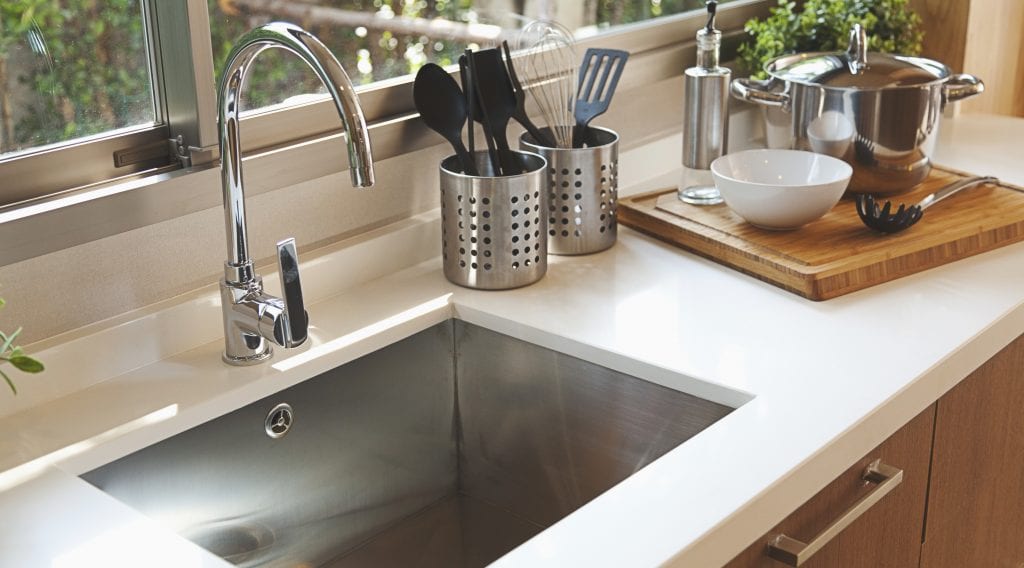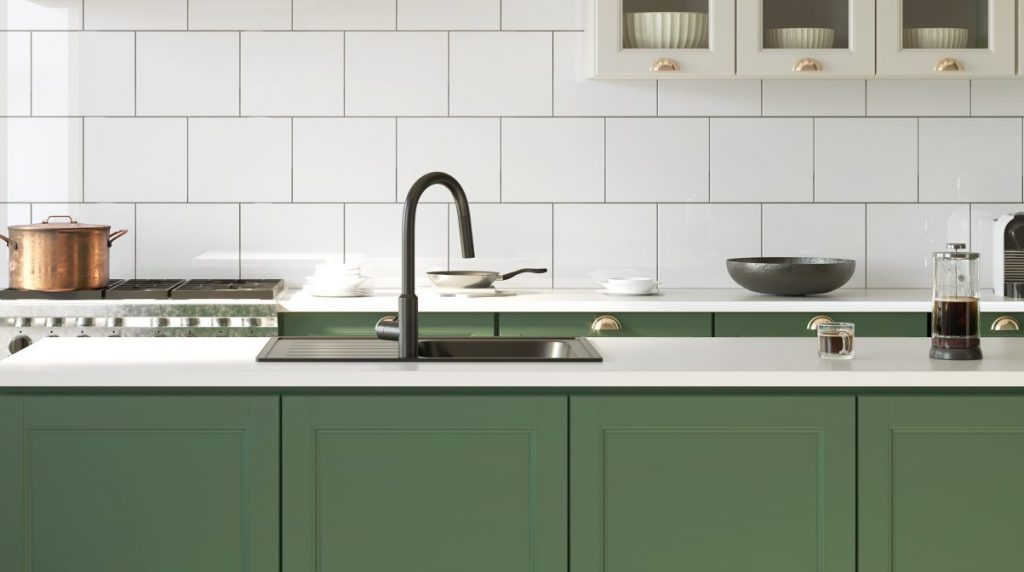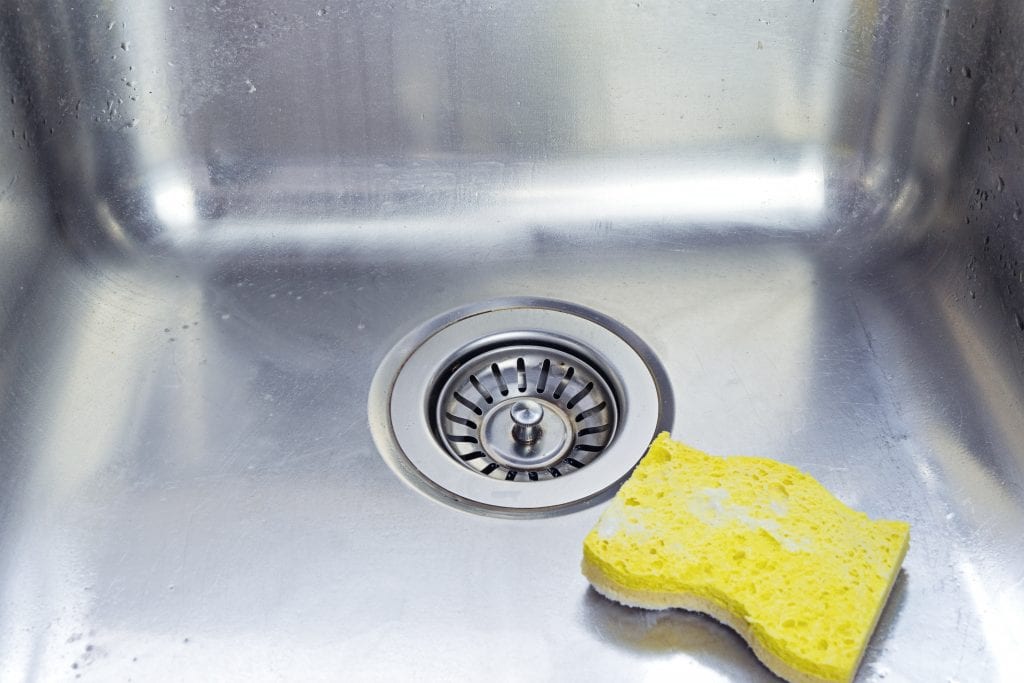The kitchen sink is the workhorse of the room. From washing fruit and vegetables to cleaning up pots and pans, the sink keeps our hands and utensils clean. But that doesn’t mean the sink itself wouldn’t benefit from a regular wash.
While you might assume that a clean sink is a byproduct of usage, it turns out to be one of the germiest spots in your house, acting as a reservoir for food prep’s worst offenders: salmonella and E. coli — bad bacteria that can get on your hands or spread to food. So if you’re defrosting raw meat in the sink, you need to do more than simply hose it down with running water after.

Sadly, even the best kitchen sink on the market doesn’t offers a self-cleaning option. (One can dream, right?) Until one is available, here’s how to do it yourself.
How to clean a kitchen sink
Use a damp cloth to wipe it down with dish soap or antibacterial spray and hot water. Ideally, your sink could benefit from good cleaning after each use to prevent bacteria and grime build-up, but weekly will also do.
No matter what, always sanitize your sink basin after preparing raw foods with disinfectant spray. Check the spray’s label, but generally speaking, it’s good to let the spray sit for 10 minutes before wiping it down. Homemade DIY vinegar and lemon juice blends will nix some but not all of the bacteria.
Pull out the drain plug to clean. Give the water tap a good wipe while the faucet is turned off. Gently buff it dry to prevent water spots from forming.
If you’re in a hurry, disinfectant wipes can kill most of the bacteria left behind. Keep a stash under the sink for quick cleanups.

For basic upkeep of different types of sinks
Even thebest kitchen sink will take a beating with repetitive use. Keep them looking great by following these guidelines for different materials.
Maintenance on stainless steel sinks is rather simple. Remove limescale deposits by buffing with a fine microfiber cloth after cleaning.
Avoid using pure vinegar to clean composite and granite composite sinks. If limescale deposits form, use diluted vinegar to remove them and rinse well afterward. Light-colored sinks can tolerate a 50:50 solution of bleach and water. Stay away from abrasive cleaners or chemicals.
White ceramic sinks can be regularly maintained to stay stain-free using a paste of bicarbonate and water.

Don’t forget about the sponge
Wet sponges or cloths that sit in the sink overnight with leftover food particles or liquids can create stains or harbor bacteria. Use a special sponge holder that will allow for ample airflow so it can dry completely each evening.
We know it can be deceiving that it’s dirty because oftentimes it looks fairly clean, but don’t be fooled. Stay on top of a weekly cleaning routine and remember to antibacterial spray each time you prepare raw meat, poultry or fish. For added safety, always cut your fruits and vegetables away from the kitchen sink.
This story originally appeared on Don't Waste Your Money. Checkout Don't Waste Your Money for product reviews and other great ideas to save and make money.


